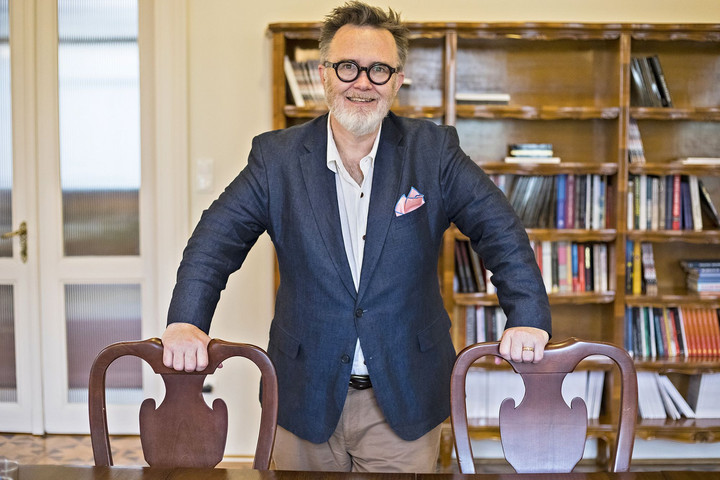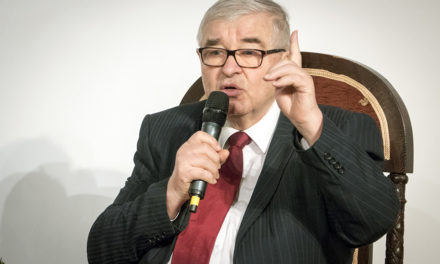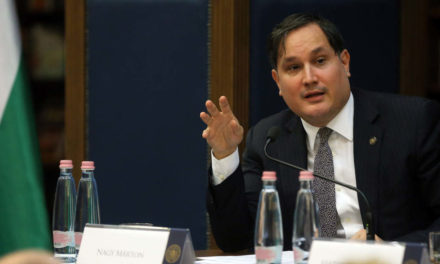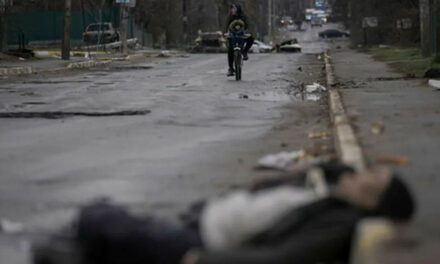An American Catholic friend of mine, who is conservative and does not like Pope Francis in general, was swimming in happiness after the mass, writes Rod Dreher, publicist for American Conservative.
The Holy Father wanted to make a clear statement with his visit to Budapest, which entailed significant physical sacrifice for him. From a Hungarian point of view, this statement was nothing more than "Peace".
The fact that the Pope decided to come to Hungary, despite his poor health and his different approach to Hungary's position on migration, conveys how passionately he wants the destructive Russian-Ukrainian war to end.
The Holy See and Hungary have found a common cause – the only one in Europe – that calls for peace.
The Orbán government sees the papal pilgrimage as a sign of support for its repeated calls for a ceasefire and a negotiated end to hostilities.
It is certain that in his public speeches, Ferenc was more inclined to pressure Hungary into accepting a liberal immigration policy towards refugees. Although the Hungarian nation generously accepted refugees from neighboring Ukraine, the Orbán government adamantly refused to accept migrants from outside Europe. Part of the reason for this is that many of the migrants are not fleeing war, but are looking for better economic opportunities in Europe.
Mostly, however, because the Hungarians realized that mass Islam and other non-European migrations could definitively change their civilization.
The Pope's words are unlikely to change the migration policy here. The position of the Orbán government is widely popular among the Hungarian people, the majority of whom are Catholic. Moreover, it is often heard that Catholic conservatives visiting Budapest from other European countries also praise Hungary's position and grumble about Pope Francis's naive stance on migration.
Nevertheless, this papal visit was a cause for great joy for the Hungarians.
On the one hand, Ferenc stood up for Hungary against the progressive tyrants in Brussels. In a speech to heads of government and diplomats on Friday, the pope praised European unity, but said it must not come at the expense of local diversity.He also mentioned Hungary's pro-birth family policy as an example. Faced with a sharply declining fertility rate, the Orbán government introduced measures to encourage childbearing by providing generous subsidies to couples starting larger families.
However, for the Hungarians, the Holy Father's appeal for peace was more important. In his address to politicians and diplomats, the Pope lamented that the heroic determination with which the founding fathers of the European Union sought to work together for peace immediately after the Second World War is nowhere to be found today. Referring to the sufferings in Ukraine, he plaintively asked the representatives of the governments:
"where are the creative efforts for peace?".
The Hungarians were expecting exactly this question. Prime Minister Viktor Orbán was the only European political leader who did not agree with NATO's war policy. Hungary, which shares a border with Ukraine and is highly dependent on Russia for its energy supply, suffered severe economic damage as a result of the war.
Although Orbán has repeatedly condemned the Russian invasion, he has also questioned the official NATO narrative about the origins of the war: he believes that the West played a role in Ukraine's foolish provocation of Russia.(…)
Hungary received a lot of slander from abroad for not identifying with Washington's war goals, or with Germany's "Wir schaffen das" migration policy, or with the determination with which Brussels even targets children with LGBT propaganda.
That is why Hungary needs friends to help it fight its lonely battle for peace – and there are few allies more visible on this front than the Pope.
(…)
We could have asked the Pope how his call for open borders could be reconciled with his call for peace, given that European nations that have taken in migrants, especially since the exodus of millions from the Middle East in 2015, have seen a dramatic increase in crime and violence.Hungary has avoided this problem because it protects its borders – borders that Viktor Orbán claims are necessary to preserve the Christian character of Europe. On Friday, a local Catholic priest told me that his government doesn't get enough credit for its financial and other efforts to help Christians abroad live in peace and security in their own countries.
These delicate questions seemed far away on Sunday morning in Kossuth Square. An American Catholic friend of mine, who is conservative and doesn't like Pope Francis in general, was swimming in happiness after the mass.
He said: “It was a great feeling to be surrounded by the faithful, it was an awe-inspiring moment. The Hungarians handled the matter with their usual bravado".There is no doubt that this is largely due to Hungary's extraordinary ambassador to the Holy See, the warm-hearted and generous Eduárd Habsburg.
The war has been raging in the neighborhood for nearly fifteen months, which makes the daily lives of Hungarians more difficult and terrifying, but none of this was perceptible in the cheerful crowd trying to get to Kossuth Square. Because of the Pope's prayer, the fellowship, the good mood and the warm spring sunshine, it seemed that the future of cradle and brotherhood, life and peace could be more than a dream for the long-suffering peoples.
Featured image: MH/Tamás Purger













